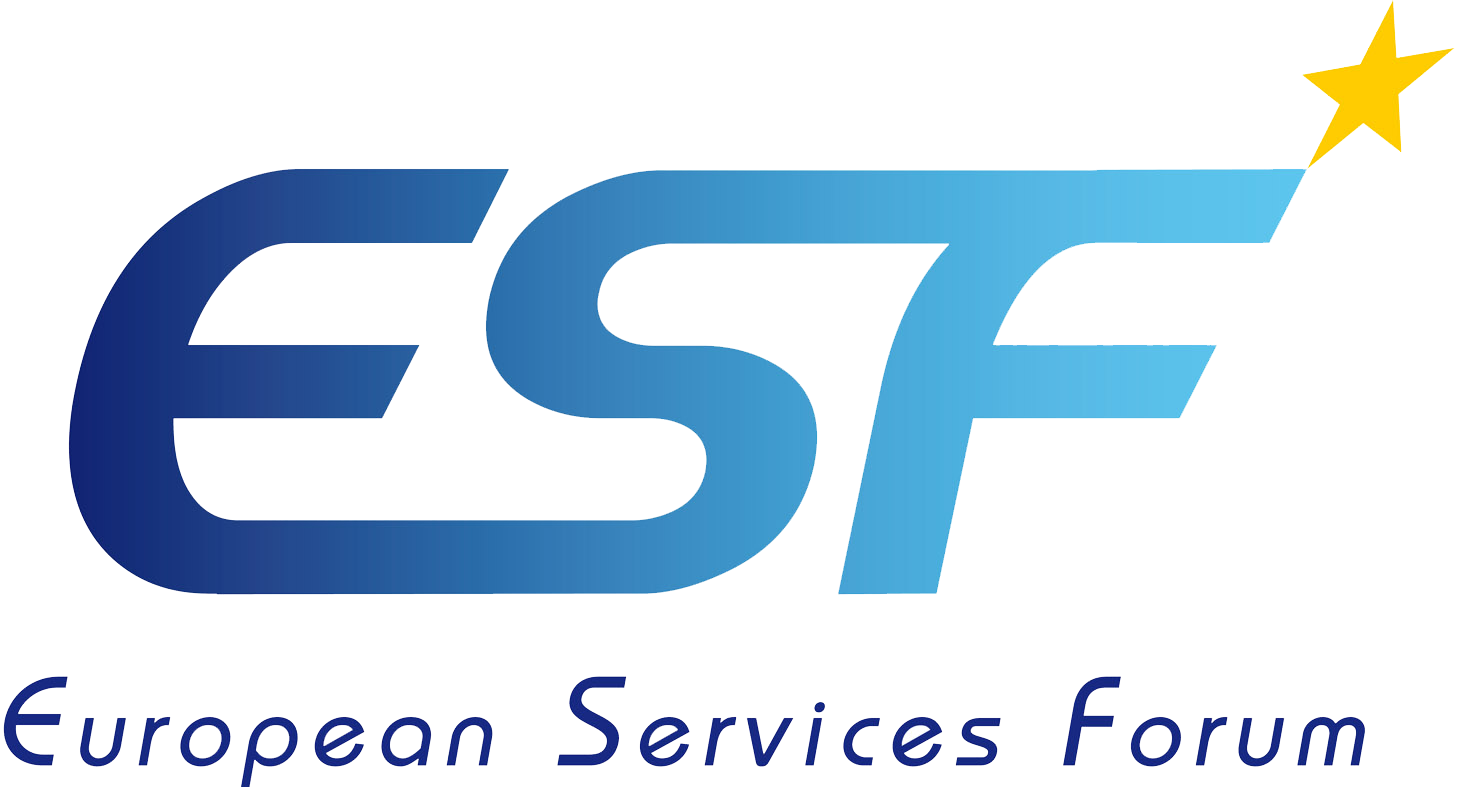The European Services Forum is the voice of the European Service Industries for International Trade Negotiations in Services. With representatives from the various European service sectors, ESF is committed to actively promoting the liberalisation of international trade in services.
- See who our members are.
- See the ESF Structure and founding texts.
- Discover how to join ESF.
The network’s main stake lies in the liberalisation of the services markets through multilateral trade and investment negotiations and through the EU bilateral trade negotiations.
With a membership of major European companies and European and national trade sector specific associations based in all 27 Member States across the EU, ESF has become a major voice of the European services sector representing more than 30% of total trade (goods and services) of the European Union.
ESF is now widely recognized among stakeholders as the voice of the European service industries in trade negotiations. Improved services market access as well as the facilitation of cross-border services provision for European countries in third countries belong to the Forum’s main priorities. Over the past years, ESF’s work has allowed its members to efficiently promote their interests.
ESF origins: ESF was founded to provide input for the GATS 2000 negotiations.
The EUROPEAN SERVICES FORUM (ESF) was created in the light of a new round of multilateral negotiations in services (GATS 2000) with support of leading European firms, European services industry federations and UNICE (now BUSINESSEUROPE).
Prior to ESF’s launch in 1999, both the European Commission and the EU Member States had signalled a positive attitude towards greater contributions by stakeholders from the European business sector.
Since its foundation, ESF has focused on providing business input to the GATS 2000 negotiations, which officially started at the World Trade Organization (WTO) in Geneva on 1st January 2000. This was successfully done during the WTO negotiations for specific services in 1997, particularly in the Basic Telecommunications Agreement and the Financial Services Agreement.
ESF closely cooperates with the European negotiators as well as with their international counterparts who share ESF’s objectives in other countries.
ESF believes in the mutual benefits of free trade in services and Foreign Direct Investment.
The European Services Forum strongly supports, and encourages the movement to liberalise service markets, and calls for the removal of both trade and investment barriers throughout the world. ESF recognises that there is strong evidence to support the view that liberalising service industries such as telecommunications, financial services and power distribution benefits both the developed and the developing world.
However, ESF is also convinced that liberalisation needs to be accompanied by a regulatory infrastructure, which encourages transparency, competition and fairness. The liberalisation process should be a managed process taking into account the social and cultural background of the liberalising country.
The European Union is the world’s largest exporter and importer of commercial services. The EU’s commercial services account for 22% of total global services transactions, and for more than 40% in terms of balance of payments (intra and extra EU trade in services). Whereas commercial services only constitute 20% of world trade in exports, services account for 60% of annual flows of foreign direct investment. The services sector predominates in most developed economies. It is the largest sector in the economies of the developing world.
